A few months ago we met Tetiyana, an Ukrainian displaced person from Luhansk region, who is temporarily settled in Vinnitsya and uses TSF’s connectivity. She told us that she arrived at Vinnitsya train station at 2:30 a.m and was able to find a place in a shelter.
Later on, our team in Ukraine met the manager of the same center in Vinnitsya. He told us about the work he carried out with his team to manage the emergency situation.
TSF: M. Tiutiunnyk, you’re the director of this school. How did your college become involved in helping displaced people from other regions of Ukraine?
Director: On February 25th, 2022, we had already begun housing and providing assistance to Internally Displaced People (IDPs), who were in need at that time. As of today, we have provided aid to over 16,000 people.
Those who were passing through the area used our dormitory as a transit point. Some stayed for a night or two, while others stayed for up to a week, until they could calm down, determine their plans, and continue their journey.
When we told them we had beds, hot water, and a warm place to stay, especially during winter, they couldn't believe it.
Some were heading towards western Ukraine, while others were leaving the country altogether. At that time, our roads were filled with constant streams of people, making it a challenging time for everyone involved.
Currently, over a hundred displaced people are living in our dormitory, including 20 children aged between 2 and a half and 18. There are families of 3-4 people and some single women who are elderly, some are even 70-plus years old! We provide everyone with three meals a day. All the dormitory kitchens ran on electricity, which also posed problems for cooking during power cuts. We now have a wood stove, to be more independent of power cuts.
TSF: Well, that's quite significant. Could you please tell me what problems you faced both globally and specifically related to internally displaced persons?
Director: The first problem was providing psychological support to those who were traveling.
The phone was ringing non-stop. I never thought it could be so overwhelming. While talking to someone, you could hear the constant ringing, meaning people were looking for a place to stay and solve their problems.
When it all started, my colleagues and I were at the office constantly, registering people to keep track of statistics. We tried to help as much as we could because people were looking for each other, so we needed to track everything and everyone.
We had to take the time to listen: what issue people had, what disaster they were fleeing. They told us what they saw while traveling, the shot-up cars and the dead. These people had seen horror and lost everything they had, all at once. There were people who arrived with only slippers on their feet, walking in and then throwing on some sort of robe.
So we needed to help them settle in. They would say that they didn't need anything from us, that they could just lay down on some mattress in a corner somewhere. But when we told them we had beds, hot water, and a warm place to stay, especially during winter, they couldn't believe it.
As far as communication was concerned, when traveling, people made do with telephone calls, without Internet. But when they started to settle down, some with their children, they needed the Internet more, especially for children who used it for educational purposes. This caused problems, since not everyone could afford to buy data.
Having access to the internet is crucial.
TSF: Is there anything that is challenging for you in this job? And also, perhaps there is something you enjoy or find fulfilling about what you do?
Director: You know, I wouldn't say that I like it, but I do find satisfaction in knowing that I am a useful person who can provide some specific assistance to someone. It has some psychological significance, because each of us should do what we can in our workplace. I believe that today, doing what we can to support and help each other is important.
And contribute to the victory… We believe that there will be a victory, but when you meet people, and when people have lived and then leave for a certain period of time, and then they call you and thank you for receiving them, providing assistance, and creating the right conditions for them. Well, I think that's what's more valuable, when a person can call you after a certain period of time and say thank you.
TSF: Indeed. Can you also tell me directly about the assistance provided by us TSF, specifically the access to free internet? How do you see the importance of such assistance for PWDs and how you think people would struggle without it?
Director: I believe that in this case, access to unlimited and high-quality internet is very important for IDPs because when people were just traveling and moving around, it was enough to say that they were alive and well and moving on. But now that people have settled and are living in one place for several months, and some have been living with us for more than six months, having access to the internet is crucial.
They had already been able to contact their relatives and friends, some of whom had remained in the zone where the fighting was still going on, sometimes close to the person's home. Those calling were worried about their loved ones’ living conditions, about the state of their home. And while it used to be enough to have a voice connection, now I see that in most cases people need to have internet access.
Thanks to video communication, they can really communicate and see with their own eyes that the person is alive and well, they see the state of their building and what's going on there.
To a certain extent, this reassures them, because they see their loved ones, they see what's going on there. As far as education is concerned, the children, I think this also has a very important significance, because the children have the opportunity to use the internet to its full potential and participate in the educational process. They sign up for courses, do homework, submit it for assessment, which considerably improves their education and the family’s budget. To ensure a child's communication and education, it is necessary to pay for the appropriate services. However, when Internet access is free, more money is available for other essential expenses.


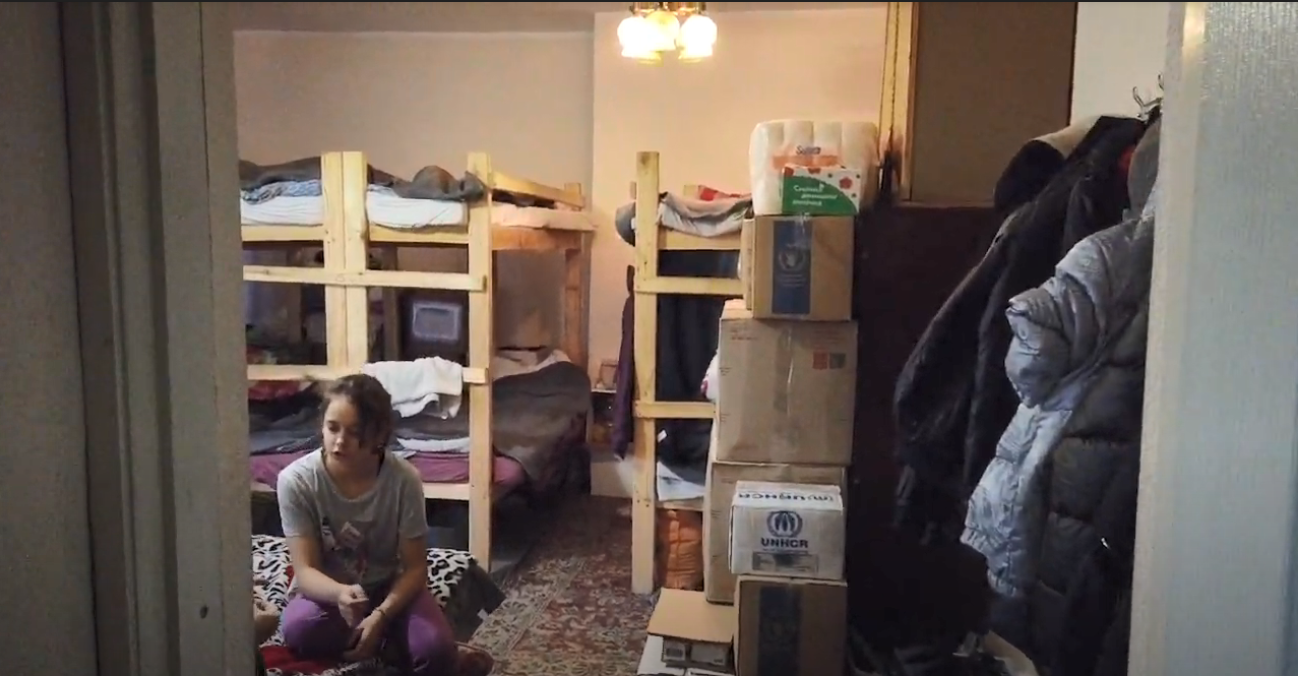



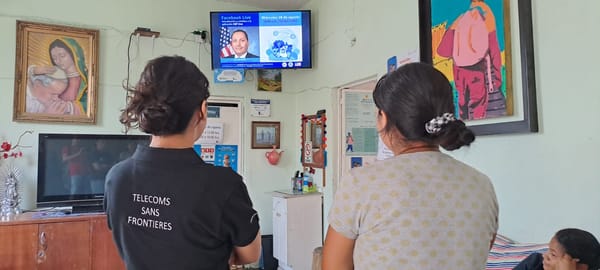
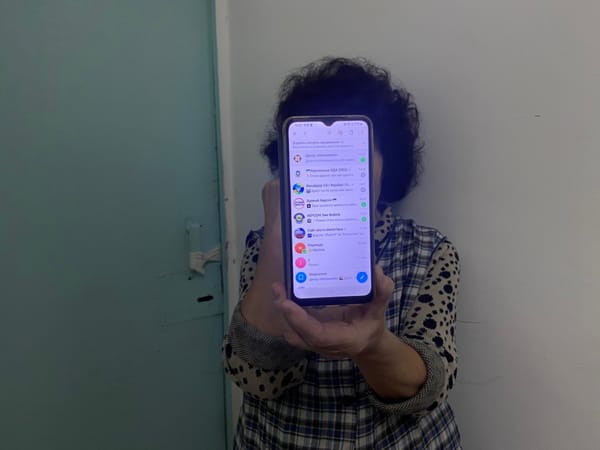
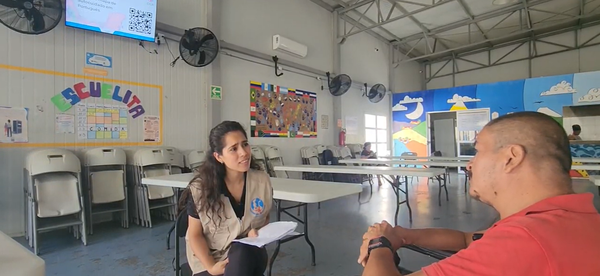
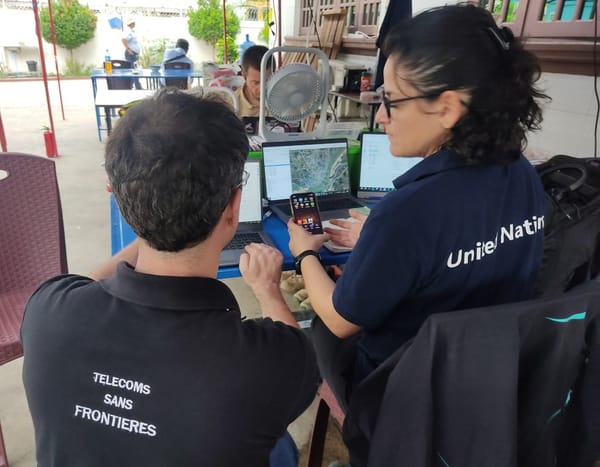
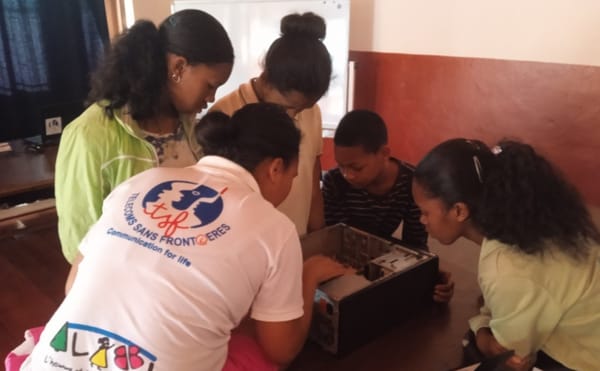
Member discussion